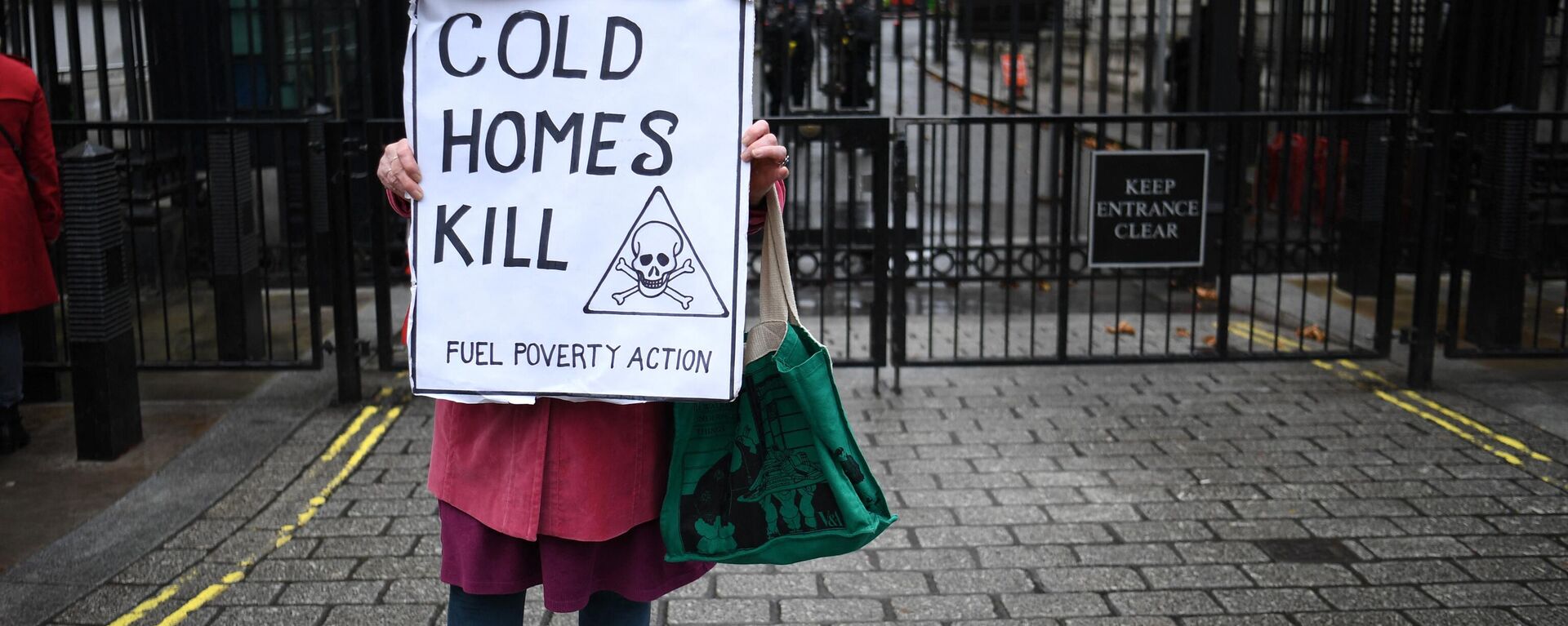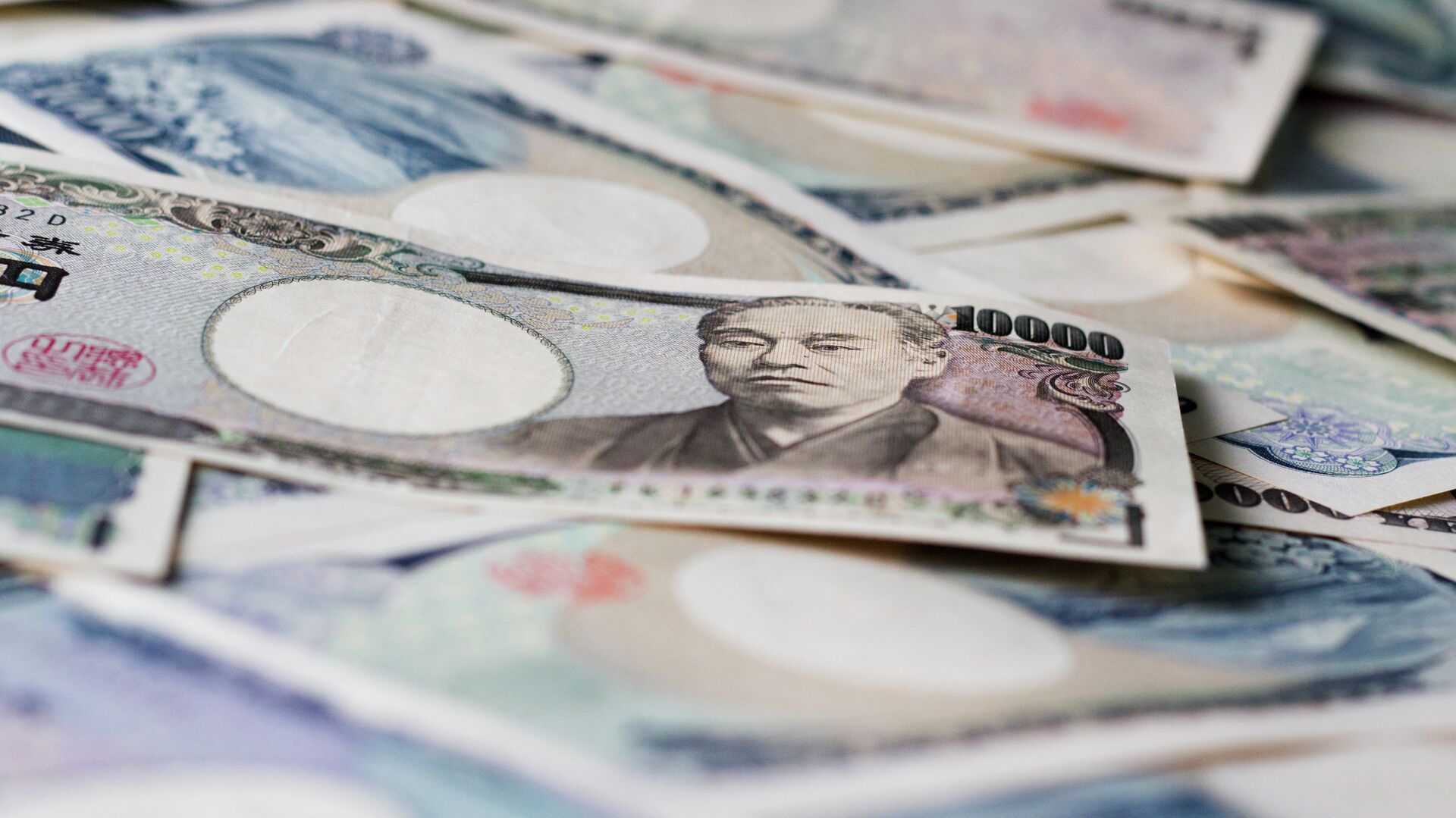https://sputnikglobe.com/20230308/japan-records-largest-account-deficit-in-january-since-1985-media-reports-1108166607.html
Japan Records Largest January Account Deficit Since 1985, Media Reports
Japan Records Largest January Account Deficit Since 1985, Media Reports
Sputnik International
Japan's finance ministry has logged its largest account deficit of 1.8 trillion yen ($14 billion) for one month since 1985 due to rising energy prices and declining exports to China during the Lunar New Year holiday, Japanese media reported on Wednesday.
2023-03-08T06:31+0000
2023-03-08T06:31+0000
2023-04-06T12:15+0000
asia
economy
energy crisis
japan
https://cdn1.img.sputnikglobe.com/img/101895/56/1018955652_0:0:4802:2701_1920x0_80_0_0_c8d07b633f6de692da3ad7da3e0867a1.jpg
This the first deficit in three months, and is 3.4 times what it was in the same month last year, the Japanese broadcaster said, citing ministry data. The foreign trade deficit, which totaled 3.18 trillion yen, was also caused by a downtime at Japanese enterprises in China due to the holiday, officials were cited as saying. The current account balance reflects the export and import ratio of goods, services and income from money transfers, investments, foreign tourism and other operations. A negative balance was last recorded in Japan in October 2022, as noted by NHK. Meanwhile, the income of Japanese companies from overseas activities reached its highest po9int in January and amounted to 2.3 trillion yen, the report said, adding that the income from foreign tourism after the lifting of COVID-19 restrictions reached 177 billion yen.The national deficit in the year 1985 was a early warning sign of the onset of the Lost Decades (Ushinawareta Junen) - a major slowdown in the Japanese economy which started in the 1990s after the collapse of the asset prices bubble.The energy price hike has geopolitical reasons. The West and its allies began moving away from Russian energy supplies after the beginning of Moscow's special military operation in Ukraine. The situation deteriorated even further after an act of sabotage took out the Nord Stream pipelines.As a result of the sanctions, energy prices skyrocketed worldwide, while rising inflation and a cost-of-living crises forced Western governments to resort to contingency measures.
https://sputnikglobe.com/20221223/1105722929.html
japan
Sputnik International
feedback@sputniknews.com
+74956456601
MIA „Rossiya Segodnya“
2023
Sputnik International
feedback@sputniknews.com
+74956456601
MIA „Rossiya Segodnya“
News
en_EN
Sputnik International
feedback@sputniknews.com
+74956456601
MIA „Rossiya Segodnya“
Sputnik International
feedback@sputniknews.com
+74956456601
MIA „Rossiya Segodnya“
japan, japanese economy, energy crisis, energy price hike, export to china
japan, japanese economy, energy crisis, energy price hike, export to china
Japan Records Largest January Account Deficit Since 1985, Media Reports
06:31 GMT 08.03.2023 (Updated: 12:15 GMT 06.04.2023) MOSCOW (Sputnik) - Japan's finance ministry has logged its largest one-month account deficit, which totaled 1.8 trillion yen ($14 billion), since 1985 due to rising energy prices and declining exports to China during the Lunar New Year holiday, Japanese media reported on Wednesday.
This the first deficit in three months, and is 3.4 times what it was in the same month last year, the Japanese broadcaster said, citing ministry data. The foreign trade deficit, which totaled 3.18 trillion yen, was also caused by a downtime at Japanese enterprises in China due to the holiday, officials were cited as saying.
The current account balance reflects the export and import ratio of goods, services and income from money transfers, investments, foreign tourism and other operations. A negative balance was last recorded in Japan in October 2022, as noted by NHK.

23 December 2022, 14:29 GMT
Meanwhile, the income of Japanese companies from overseas activities reached its highest po9int in January and amounted to 2.3 trillion yen, the report said, adding that the income from foreign tourism after the lifting of COVID-19 restrictions reached 177 billion yen.
The national deficit in the year 1985 was a early warning sign of the onset of the Lost Decades (Ushinawareta Junen) - a major slowdown in the Japanese economy which started in the 1990s after the collapse of the asset prices bubble.
The energy price hike has geopolitical reasons. The West and its allies began moving away from
Russian energy supplies after the beginning of Moscow's special military operation in Ukraine. The situation deteriorated even further after an act of sabotage took out the Nord Stream pipelines.
As a result of the sanctions,
energy prices skyrocketed worldwide, while rising inflation and a cost-of-living crises forced Western governments to resort to contingency measures.





